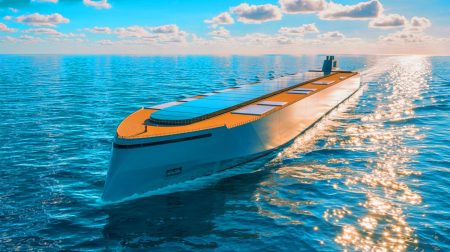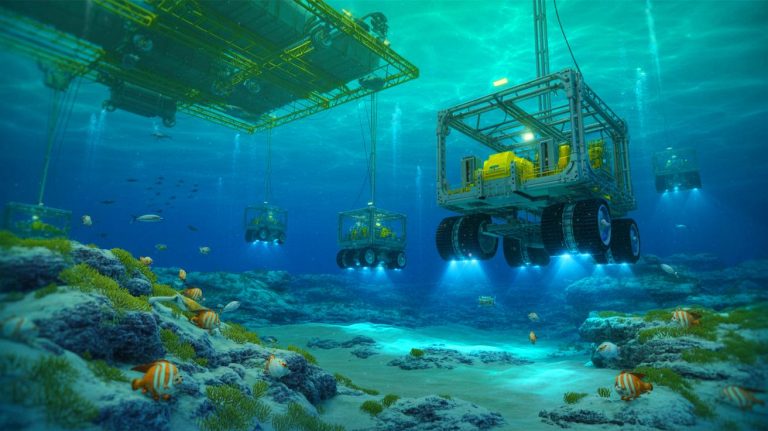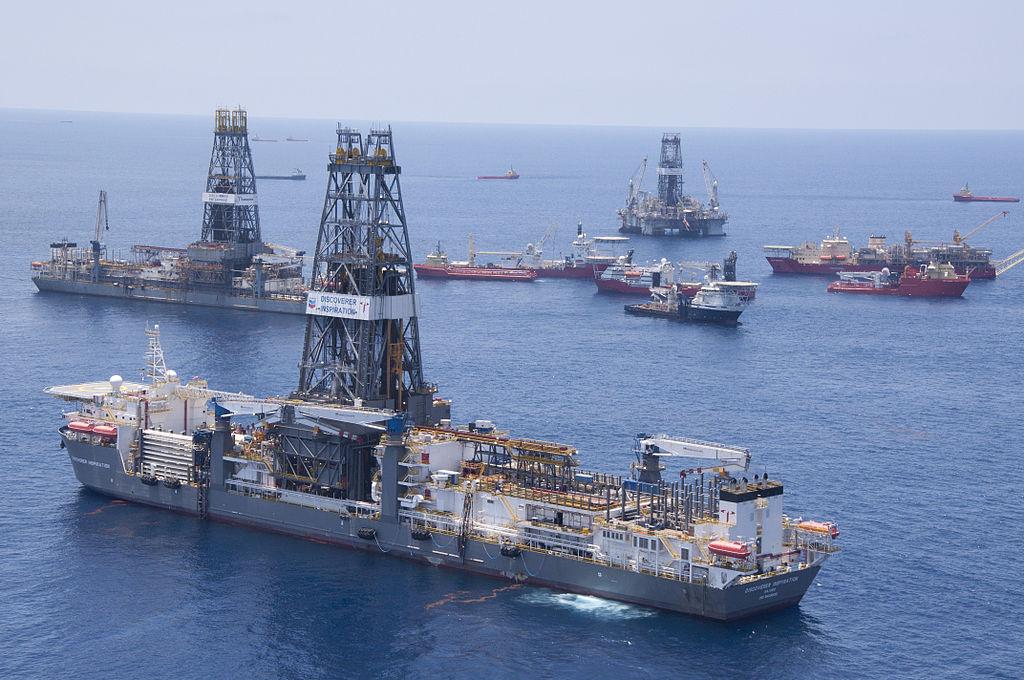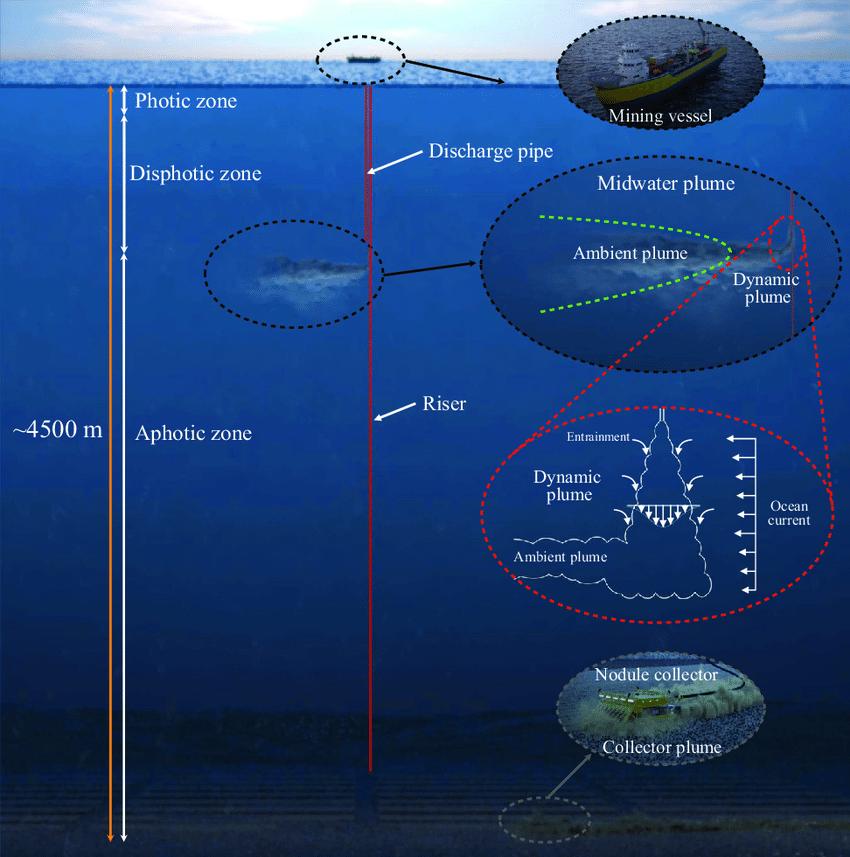| IN A NUTSHELL |
|
The deep ocean has long remained an enigmatic and untapped frontier, holding within its depths vast reserves of minerals critical to modern technology. As global demand for these resources intensifies, the United States is considering ambitious plans to mine the ocean floor, potentially altering the strategic balance of mineral supply currently dominated by China. However, this endeavor presents not only economic opportunities but also significant environmental challenges and geopolitical implications.
Exploring the Treasures Beneath the Waves
Beneath the vast expanses of the Pacific Ocean, particularly in the Clarion-Clipperton Zone, lie polymetallic nodules rich in nickel, cobalt, and manganese. These minerals are essential for the production of electric vehicles, batteries, and renewable energy technologies. The nodules have formed over millions of years, resting at depths exceeding 13,000 feet, creating a tantalizing resource for those daring enough to extract them.
In addition to these nodules, the deep ocean harbors other mineral-rich deposits around hydrothermal vents and seamounts. These areas offer an alternative to terrestrial mining, which is becoming increasingly challenging and environmentally costly. However, the technological and financial hurdles of deep-sea mining are significant, requiring sophisticated remotely operated vehicles to carefully extract the nodules from the ocean floor.
Despite the allure of these resources, the complexity and expense of deep-sea mining have, until recently, rendered it economically unviable. But with advancements in technology and increasing demand for these critical minerals, the United States is poised to challenge China’s dominance in this sector, potentially reshaping the global supply chain.
A High Cost for Ocean Life
While the extraction of ocean floor minerals promises economic benefits, it poses substantial risks to marine ecosystems. The process of deep-sea mining disrupts seafloor habitats and generates sediment plumes that can harm midwater zone ecosystems, crucial for the ocean’s carbon cycle and commercial fisheries. These plumes can clog the gills of fish and block visual cues used by bioluminescent organisms, threatening the intricate balance of marine life.
Research in areas like the Clarion-Clipperton Zone has shown that mining impacts can persist for decades, with significant effects on seabed fauna. Many species in these regions are newly discovered, and their loss could irreversibly diminish our understanding of marine biodiversity. The potential ecological damage underscores the need for caution in pursuing deep-sea mining.
The debate continues as to whether the economic benefits justify the environmental risks. Scientists and conservationists advocate for stringent oversight and international cooperation to mitigate these impacts, ensuring the preservation of ocean ecosystems for future generations.
Breaking China’s Grip on Mineral Treasure
China currently dominates the global market for deep-sea minerals, accounting for the majority of production, processing, and manufacturing. This strategic advantage has prompted the United States to accelerate efforts to develop its own capabilities in ocean floor mining. The Trump administration has prioritized removing regulatory barriers and streamlining permits to facilitate this endeavor, arguing that securing domestic mineral resources is crucial for national security and technological advancement.
However, this approach has sparked controversy, with critics warning that bypassing international regulations could lead to geopolitical tensions and environmental degradation. The push for resource independence must balance the need for economic competitiveness with responsible stewardship of marine environments.
As the U.S. government and private sector forge ahead, the question remains whether the pursuit of these underwater treasures will lead to sustainable development or environmental catastrophe.
Regulatory Bypasses and International Concerns
In an effort to expedite ocean floor mining, President Trump signed an executive order bypassing the International Seabed Authority, the global body overseeing deep-sea mining. This decision has raised alarms among scientists and international observers, who fear it could undermine international law and escalate global conflict over these resources.
Proponents of seabed mining argue that it is essential for energy security and economic growth, citing the vulnerabilities in current supply chains. Yet, opponents stress the unproven nature of the technology and the potential for significant ecological harm. They advocate for alternative strategies such as recycling and material innovation to reduce reliance on newly mined minerals.
The debate over deep-sea mining reflects broader tensions between economic ambitions and environmental responsibility. As nations grapple with these challenges, the need for international cooperation and sustainable practices becomes increasingly urgent.
July 2025: A Global Crossroads
The upcoming meeting of the International Seabed Authority in July 2025 marks a pivotal moment in the future of deep-sea mining. With 32 countries supporting a moratorium on mining until more scientific understanding is gained, the world stands at a crossroads. The decisions made at this meeting could define the balance between economic development and environmental preservation for years to come.
As scientists urge caution and international cooperation, the challenge lies in balancing the race for resources with the protection of one of Earth’s largest and least understood ecosystems. Will humanity find a way to harness these underwater treasures without sacrificing the health of our oceans?
Did you like it? 4.6/5 (20)












Is this the right move for the U.S. to take on China in such a controversial way? 🤔
I’m worried about the environmental impact. Are there any sustainable alternatives?
How can we ensure that deep-sea mining doesn’t destroy marine life? 🌊
Great article! Thanks for shedding light on this critical issue.
Deep-sea mining sounds like a sci-fi movie plot. Are we ready for this? 🚀
What will happen if the International Seabed Authority opposes this move?
China’s dominance in this sector is scary. Time for a change!
Wait, are we really trusting Trump with the ocean floor now? 😅